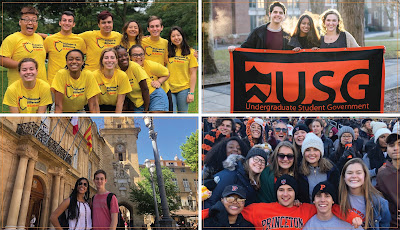Equitable access to good education is a desirable goal. Yet it rarely happens and debate about how to achieve it can be diluted by focusing on access to elite institutions and on "culture war" rhetoric.
This week The Economist had a leader (editorial) about admission policies for universities in the USA. Below I reproduce some of the leader, highlighting some points I found poignant.
A diversity of backgrounds in elite institutions is a desirable goal. In pursuing it, though, how much violence should be done to other liberal principles—fairness, meritocracy, the treatment of people as individuals and not avatars for their group identities? At present, the size of racial preferences is large and hard to defend. The child of two college-educated Nigerian immigrants probably has more advantages in life than the child of an Asian taxi driver or a white child born into Appalachian poverty. Such backgrounds all add to diversity. But, under the current regime, the first is heavily more favoured than the others.
Racial preferences are not, however, the most galling thing about the ultra-selective universities that anoint America’s elite. ...A startling 43% of white students admitted to Harvard enjoy some kind of non-academic admissions preference: being an athlete, the child of an alumnus, or a member of the dean’s list of special applicants (such as the offspring of powerful people or big donors).
A cynic could argue that racial balancing works as a virtue-signalling veneer atop a grotesquely unfair system. A study published in 2017 found that most of Harvard’s undergraduates hailed from families in the top 10% of the income distribution. Princeton had more students from the top 1% than the bottom 60%. When this is the case, it seems unfair that it is often minority students—not the trust-funders—who have their credentials questioned. University presidents and administrators who preen about all their diverse classes might look at how Britain—a country of kings, queens, knights and lords—has fostered a university system that is less riven with ancestral privilege.
...Legacy admissions should be ended. Colleges claiming that alumni donations would wither without them should look to Caltech, MIT and Johns Hopkins— ....[who all] ditched the practice..
In some ways, the question of who gets into a handful of elite universities is a distraction from the deeper causes of social immobility in America. Schooling in poorer neighbourhoods was dismal even before covid-19. The long school closures demanded by teachers’ unions wiped out two decades of progress in test scores for nine-year-olds, with hard-up, black and Hispanic children worst affected. Efforts to help the needy should start before birth and be sustained throughout childhood. Nothing the Supreme Court says about the consideration of race in college admissions will affect the more basic problem, that too few Americans from poorer families are sufficiently well-nurtured or well-taught to be ready to apply to college. However the court rules, that is a debate America needs to have.
On a related note, Malcolm Gladwell has a fascinating podcast episode, Outliers, Revisited that brings out some of the issues including, how privileged parents game the system for their children.





Something like a quarter of Harvard is Jewish, too, which I believe would be more than ten times the Jewish representation in the overall American population. Good luck adding that fact to the ethical calculus!
ReplyDeletehttps://twitter.com/gallowaylabmit/status/1543947051687444481
ReplyDeleteit's only lineage if you come from the Cambridge region of Boston, otherwise it's just sparkling academic nepotism.
MIT Assist prof tweet,